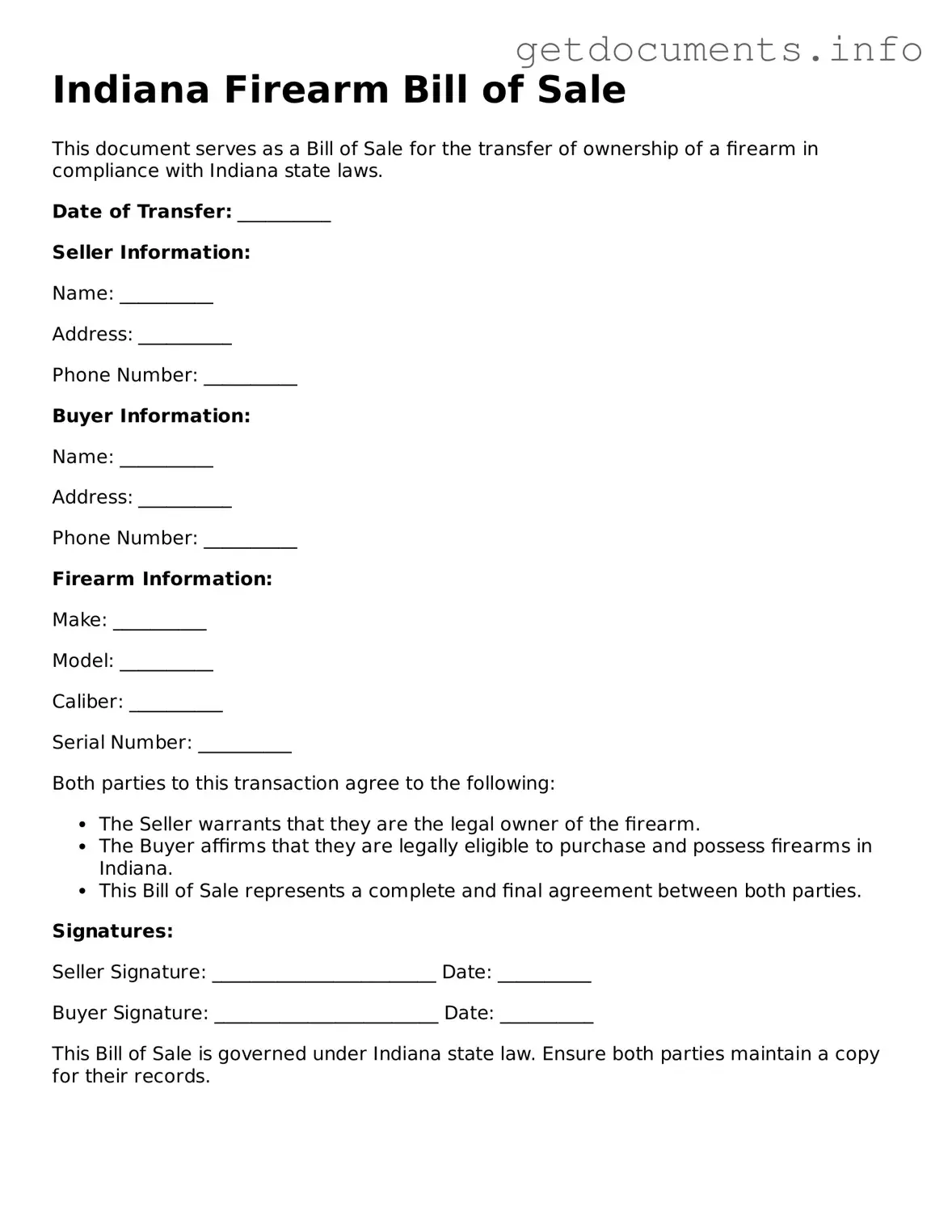Free Firearm Bill of Sale Template for Indiana
The Indiana Firearm Bill of Sale form is a legal document that records the sale or transfer of a firearm between two parties. This form serves as proof of ownership and ensures compliance with state regulations. If you're looking to buy or sell a firearm in Indiana, it's essential to fill out this form accurately.
Get started by filling out the form by clicking the button below.
Access Firearm Bill of Sale Editor

Free Firearm Bill of Sale Template for Indiana
Access Firearm Bill of Sale Editor
Got places to be? Complete the form fast
Fill out Firearm Bill of Sale online and avoid printing or scanning.
Access Firearm Bill of Sale Editor
or
⇩ PDF File
